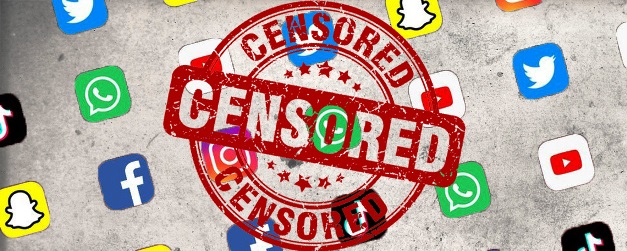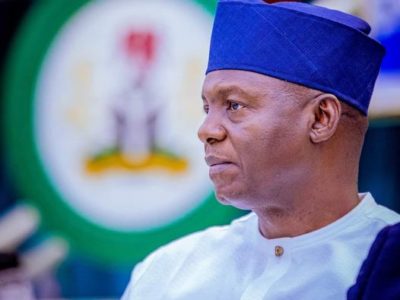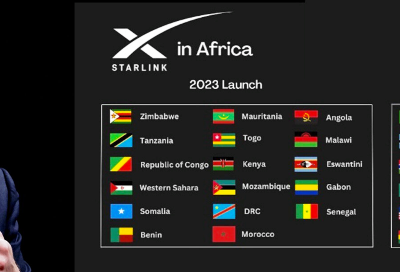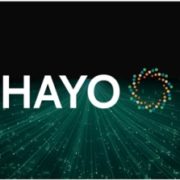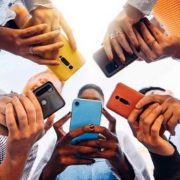Matters eRising By Segun Oruame
If you are averagely educated, and you own a web enabled mobile phone in any location within Nigeria, you are likely to follow the news, every new day, from any of the numerous social networks majorly Facebook and Twitter; or from those increasingly growing SMS news alerts.
News delivery with news reception has changed. So too the newsman! In the mobile Internet age, almost everyone connected is a news bearer.
There are over 90 million subscribers in Nigeria’s mobile phone market. All
operators offer mobile Internet service and have, indeed, become the major drivers of Internet services across Nigeria’s landmass of some 923,768 square kilometers.
More than 20% of their subscribers use mobile Internet services for various reasons; many of these use the more premium Blackberry services. Virtually all the subscribers have Facebook and the increasingly popular Twitter accounts. Practically all of these subscribers log into their accounts in the morning and at night to get news updates about Nigeria and elsewhere. And practically, all of them have shared news items in the last 21 days as an IT Edge Intelligence survey shows. It takes less than N5000 ($50) to acquire a web-enabled mobile handset and less than N50 to get connected on any of the social networks for a daily flow of interactive news sharing. Active Twitter users are close to two million in Nigeria and active Facebook users are in the range of seven million combined.
Africa’s total population estimate as at December 2011 is 1,037,524,058. There were about 139,875,242 Internet users in Africa as at Dec.31, 2011, a 13.5% penetration rate and there were about 37,739,380 Facebook users within the same period; a 3.6% penetration rate. Of Nigeria’s estimated population of 155,215,573 as at December 2011 with a landmass area of 923,768 sq km, there were about 45,039,711 Internet users as of December 31, 2011, a 29.0% of the population.
Facebook users within the same period stood at 4,369,740, a 2.8% penetration rate. These figures have expectedly grown exponentially as at June 2012. The potential for social media to impact heavily is still untapped and but is expected to be explosive in growth in the few months ahead as broadband access improves massively. A Nigeria with 30 million Twitter and 50 million Facebook users in all likelihood, will radically change government/citizens engagement and put government permanently on the spot.
What exactly is government afraid of? The lack of authenticity of news via social media? The capacity of social media to rally citizens for and against government as the case may be? The tendency of social media to deliver news in real time without mindful of its implications for national security?
No doubt, news making and news sharing via social media networks have serious implications. First, they define the new boundaries for news gathering and information dissemination; they are increasingly becoming more influential in deciding what would constitute public debate at every point in time; they have capacity to create mass hysteria; and have proven to be an effective tool in creating mass psychology and mass mobilization.
Now, it is becoming glaring that any government or business organisations that ignore social media networks and what happens there, does so at its own peril. Increasingly, the news get to reach the critical and general public via a social media window than through the more controlled and government sanctioned news media.
Within the Nigerian social media space alone, more than 10 million people are fed information about government, about companies, and about you; every day and in every hour updates are likely to appear on you, on government and on several other public and private institutions. Twitter and Facebook lead with a combined population of over seven million users. Everyone and anyone can become focus of news in social media circle. The potential to form public opinion or perception about a person, an institution or an issue is fast and high.
But often, not all news items shared via social media are true. That is where the danger lies and perhaps; the hope that traditional media, with its checks and balances, is likely to thrive for a long time to come. “Social media networks are helping people to develop interest in news reading and incite more hunger for news.
Social media is no threat but complementary to traditional media,” said Professor Jenkeri Zakari Okwori, professor of Participatory Development Communication at the Department of Theatre and Performing Arts, Ahmadu Bello University, Zaria, Nigeria and author of ‘Development Communication and Empowerment: The Use of Theatre in Nigeria with Lessons of Civic Engagements in the USA.’
“Traditional media is now a check on social media. People are getting to use
traditional media to check the authenticity of news on social media. Therefore, social media is now complementary to traditional media. As access widens, more people will have access to social media and by implication the gate-keeping role of traditional media will increase, said Professor Okwori.
Many governments have plans to surreptitiously check the excesses of social media. But such plans are not likely to succeed, said Professor Okwori. The internet operates within an open access framework. It will be a continuous battle on government’s part to seek to freeze sites regarded as anti-government. The Chinese government has particularly gained notoriety for this. It spends billions of dollars and seconds every year to close mass access to sites deemed offensive.
One Open Access advocacy notes: “A recent directive by the Chinese government requires the installation of a specific filtering software product, Green Dam, with the publicly stated intent of protecting children from harmful Internet content. The proposed implementation … would in fact have an influence that extends beyond helping parents protect their children from age inappropriate material; the filtering options include blocking of political and religious content normally associated with the Great Firewall of China, China’s sophisticated national-level filtering system. If implemented as proposed, the effect would be to increase the reach of Internet censorship to the edges of the network, adding a new and powerful control mechanism to the existing filtering system.”
The Nigerian government definitely doesn’t have the kind of sophistication and political disposition the Chinese government has to checkmating what the citizens say or hear online. It is also not likely to commit so much resource and willpower against what its citizens do online particularly within the social networks.
But it can do one thing: join the train to be ‘fast, furious, and intent’ at informing its citizens on its policies and countering news/gossips that negate its position on issues and events of national significance as they unfold.
“Social media offers speedy delivery of news. Government’s policies can get to
millions of people easily and fast. Government can use it to disseminate policy
information. Social media networks enable the government to reach out to the
connected instantly. Social media can act as propaganda. The drawback is that there is no gatekeeper for social media and there is always question of authenticity,” said Chukwuma Nwosu, head of department, Mass Communications, Igbenedion University in mid-western Nigeria.
What exactly is government afraid of? The lack of authenticity of news via social media? The capacity of social media to rally citizens for and against government as the case may be? The tendency of social media to deliver news in real time without mindful of its implications for national security? The rising influence of social media among an increasing number of connected citizens particularly those that constitute the most vibrant segment of the population: the youths? The seeming frustration of government to control unguarded statements of public importance as they affect government within the social media space?
During the recent presidential media, President Goodluck Jonathan expressed a degree of anger and frustration with social media. He noted the penchant by Nigerians to use social media to criticize his government. The president blamed the social media largely for what he sees as mis-representations of his policies designed to impact positively on Nigerians. But he is the first ever sitting president to declare his re-election bid via social media.
Today, he enjoys over 700, 000 social media followers, particularly on Facebook and tweeter. He also remains the only president that has sought to engage the citizens digitally by calling for ideas on moving Nigeria forward via social media.
As blogger Oluwatobi Soyombo notes: “For a very long time, the voice of the Nigerian populace has not been as loud as it is today, thanks to social media. The recent ‘OccupyNigeria’ was arguably, the most organized and successful rally against the government in ages, thanks also to social media. The delayed salary of youth corps members wouldn’t have been noticed by the Minister of Youth Development if not for social media….social media is simply the voice of the people communicated via technology, and when you decide to censor this, you’ve just suppressed the voice of the citizens. Other governments in the world are embracing the Gov 3.0 initiative (Open Governance).”


